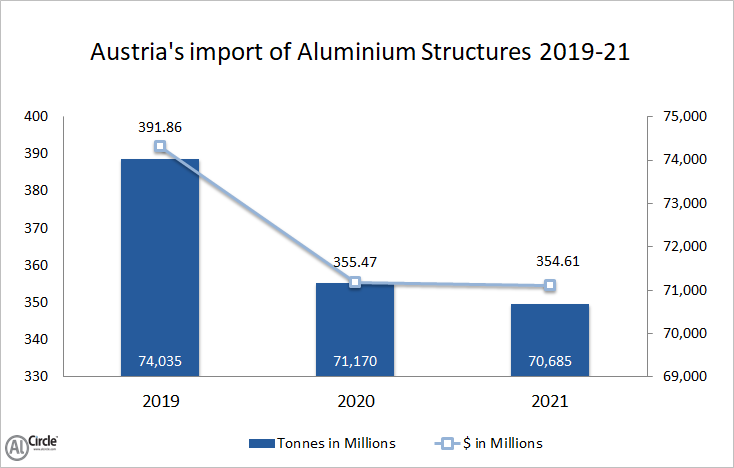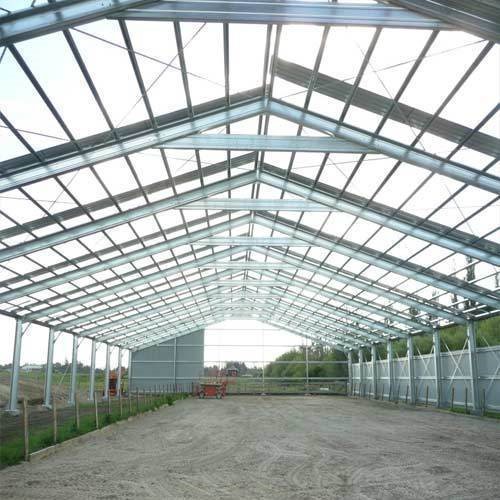

The economy of Austria is counted as one of the most stable in Europe, as the country anticipates a very strong network of export-focused SMEs, excellent academic standards and significant spending for research and development. The COVID-19 pandemic and related containment measures have strongly affected the Austrian economy. It countered an economic setback, registering a negative growth of -6.6% in 2020. According to the IMF's updated April 2021 forecast, GDP growth is expected to rebound to 3.5% in 2021 and 4% in 2022, subject to the post-pandemic global economic recovery.

The landlocked East Alpine nation in the southern part of Central Europe registered 145,205 tonnes of aluminium structures importation during 2019-20 and the revenue expended for the import stood at $747.33.

Austria’s import for aluminium structures during 2019 recorded 74,035 tonnes and the revenue expenditure that occurred for the import accounted for $391.86 million, whereas, in 2020, the import saw a downfall by 3.86%, as the import volume fell to 71,170 tonnes.
The import for 2021 has also been analysed with a marginal de-growth of 0.68%, as the import volume is estimated to fall at 70,685 tonnes and the expenditure also to drop at $354.61.
Austria’s major trading destinations for the importation of aluminium structures are Bosnia Herzegovina, Belgium, Bulgaria, China, Czech Rep., Croatia, Denmark, Finland, France, Germany, Greece, Hungary, Italy, etc.
Responses








